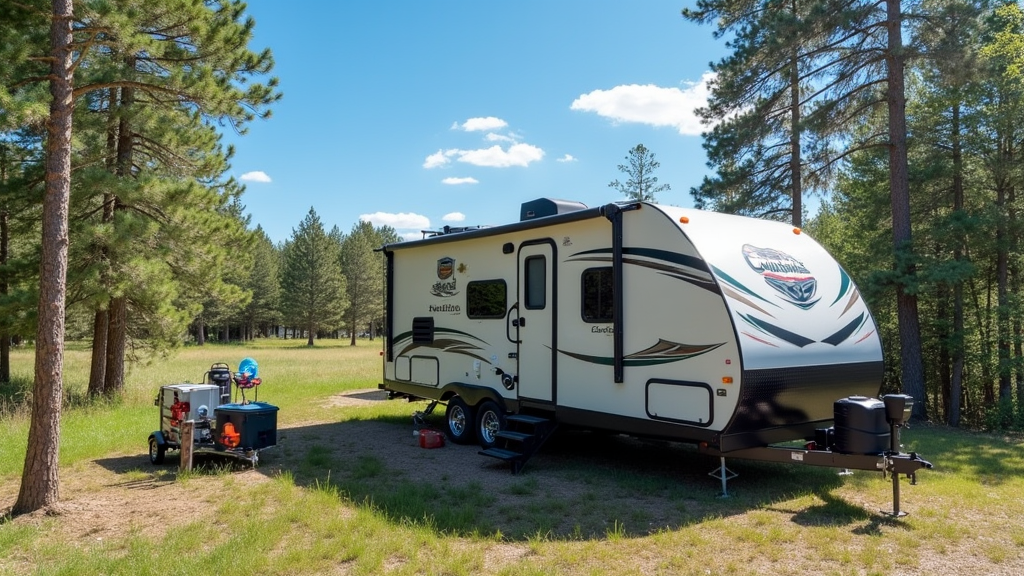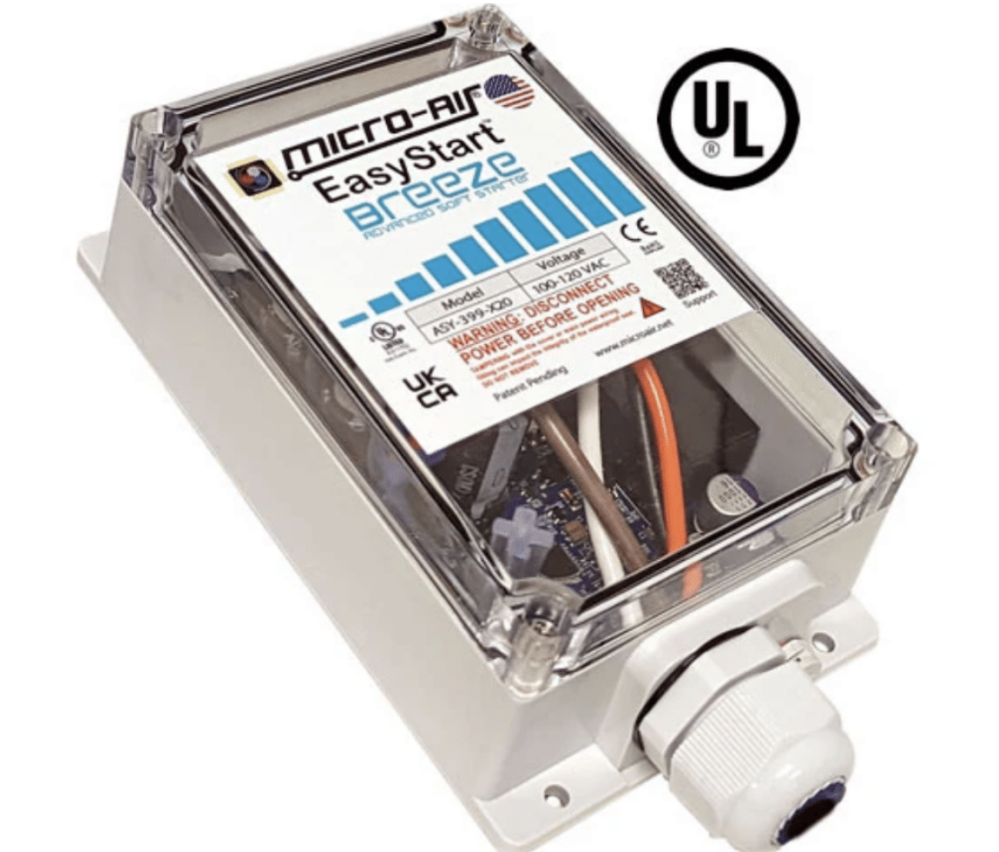If you’re searching for the right generator to run your travel trailer, you aren’t the only one. Tons of people get hung up on what size generator actually makes sense, especially if you’re counting on using the air conditioner, microwaves, or TVs. Not every generator fits every trailer, and picking a size tailored to your setup will seriously help your trips run way smoother.

Table of Contents
- How Much Power Does a Travel Trailer Need?
- Common Appliances and Their Power Needs
- Why Air Conditioners Need So Much Power
- Simple Steps to Choose the Right Generator Size
- 30 Amp vs. 50 Amp Travel Trailer Generator Needs
- Soft Start Devices: Give Your Generator a Boost
- Real-World Generator Sizing Examples
- Frequently Asked Questions
- My Take: Smart Generator Shopping Pays Off
How Much Power Does a Travel Trailer Need?
Generators have their own lingo, but the main things you want to track down are “running watts” (how much power something needs to keep operating) and “starting watts” (the fast surge certain items require to kick into gear). When you’re looking at travel trailers, the air conditioner is usually the biggest concern. If you plan on using your trailer’s AC, a generator rated at least 2,000–4,000 watts is almost always a must.
But it’s not all about the AC. Take a small 25-foot couples trailer with an 8,000 BTU AC versus a big 40-foot bunkhouse boasting two 15,000 BTU units. Larger air conditioners really need more juice, especially when you want to power other devices and gadgets simultaneously. Sticking to minimal gear is possible, but bigger comfort means bigger generators.
Common Appliances and Their Power Needs
Wondering how to pinpoint your ideal generator wattage? Kick things off by writing down every appliance you expect to run at the same time. Every device has both starting and running wattage, so get into the details. Here are some common numbers for RV essentials:
- 15,000 BTU Air Conditioner: 1,600 watts (running)
- Microwave: 800 watts
- Residential Refrigerator: 600 watts
- RV Refrigerator (LP gas mode): 25 watts
- Furnace: 150 watts
- LCD TV: 120 watts
- Coffee Maker: 1,000 watts
- Hair Dryer: 1,250 watts
- RV Electronics: 100 watts
- Laptop Charger: 100 watts
It’s smart to add an extra 10–20% to these totals as a buffer. Items such as ACs and microwaves draw more juice when starting or switching modes, so a little margin means no nasty surprises.
Why Air Conditioners Need So Much Power
RV air conditioners demand much more energy at start-up. For example, a 15,000 BTU unit might reach as high as 2,800–3,000 starting watts, then settle down to only 1,600 running watts after a short period. If your generator can’t handle that first surge, you’ll probably trip the breaker or stall the generator. Planning for this spike is a lifesaver.
BTU ratings matter, too. You’ll need about 20–35 BTUs for each square foot in the trailer, so tinier spaces don’t need as much AC muscle (or as much electricity) as a sprawling rig. A mismatched AC that’s too large just adds moisture and can strain your generator, so don’t always shoot for the biggest unit—think balance and efficiency.
Simple Steps to Choose the Right Generator Size
Picking out the right generator for your travel trailer feels straightforward if you break it down into a few steps:
- Write out all the appliances you’ll run at once. Don’t forget things like air conditioning, microwaves, device chargers, and lights.
- Note each one’s running and starting wattage. Tally them together for your total load.
- Add a buffer. Bumping the number up by 10–20% gives peace of mind for those little surges.
Here’s a quick look at common generator wattages and how they match up to trailer sizes:
- 2,000-watt generator: Good for smaller trailers or those with limited needs (simple lighting, charging, TV), but will struggle with AC units above 8,000 BTU unless you put a soft start device to work.
- 3,000-watt generator: Solid choice for most travel trailers running a 13,500 BTU AC with some devices at once. Best fit for mid sized rigs with a single air conditioner.
- 4,000-watt generator: Can handle larger 15,000 BTU ACs or smaller trailers aiming to run many items all together.
- 5,000+ watt generator: Great for trailers with a 50 amp setup, dual air conditioners, or heavy simultaneous power needs.
While larger generators step up your comfort, they also get heavier and bulkier. Some mount to the front of your trailer or on a platform at the rear, while smaller portable generators are easier to tote but won’t give you as much power in one go.
30 Amp vs. 50 Amp Travel Trailer Generator Needs
Travel trailers are outfitted with either a 30 amp or 50 amp power system, which impacts what kind of generator you’ll want. For most 30 amp trailers (usually with a single AC around 13,500 BTU), stepping up to a 3,000-watt generator usually does the trick. On the other hand, those high-end, 50 amp models loaded with two or more air conditioners and loads of appliances commonly require a 5,000-watt generator or bigger—especially if you’re keen to enjoy every luxury while camping far from hookups.
Soft Start Devices: Give Your Generator a Boost
If you can’t quite meet your air conditioner’s needs with your generator, adding a soft start device to the rooftop AC can really give a boost. These gadgets mellow out the surge during start-up, so your AC starts more gently instead of demanding an instant jolt. With one installed, many campers use a smaller generator and avoid overspending or lugging around more than they need. SoftStart and EasyStart devices fit the bill perfectly. (NOT affiliate links)

Real-World Generator Sizing Examples
I’ve advised plenty of fellow travelers in picking out generators. Here are some examples from real scenarios:
- Small Couples Trailer (25 ft, 8,000 BTU AC): A 2,000-watt inverter generator is enough to keep the AC, fridge, a few lights, and your gadgets running fine. Just avoid using the microwave or hair dryer with the air conditioner on.
- Family Bunkhouse (40 ft, dual 15,000 BTU ACs, two fridges): For off-grid family fun with both ACs and the kitchen humming, aim for a 5,500–7,000-watt generator for true peace of mind.
Mix up which appliances are on at the same time to avoid straining your generator. Once your routine is dialed in, using your generator becomes second nature.
Frequently Asked Questions
Will a 2,000-watt generator run my travel trailer?
If your trailer is on the smaller side with lower basic needs and a single smaller AC, you can likely get by with a 2,000-watt model—especially if you have a soft start device. Want to run your microwave, coffee maker, or AC all together? You’ll probably want more juice.
How do I safely connect a generator to my travel trailer?
Always use a good RV-rated extension cord and plug your generator straight into the main shore power connector. Remember, keep your generator outside, away from windows and doors so proper ventilation is covered.
What’s the difference between running watts and starting watts?
Running watts show what an appliance needs to keep working. Starting watts are higher and only required at the first burst. This matters for ACs, refrigerators, and microwaves. Get a generator that covers both.
Are inverter generators better for travel trailers?
Inverter generators are quieter, protect your sensitive electronics, and tend to be more fuel efficient. Most campers find them worth checking out if the budget allows for it.
My Take: Smart Generator Shopping Pays Off
Figuring out the right generator size for your trailer is about more than just wattage. You want to balance comfort, convenience, and safety. Make a list of what you’ll actually use, size up your power draw, and always allow a margin. That bit of extra wattage could spell the difference between a laidback week away or headaches with tripped breakers. If you’re stuck between sizes, it’s smarter to opt for the higher number—having extra power for a muggy day is rarely a regret.
About the Author
Jim has 3.5 years of experience living and traveling full-time in an RV. From “moochdocking” with family and friends to navigating the financial intricacies of RV life, he shares practical advice rooted in firsthand experience. His goal is to help fellow adventurers embrace the RV lifestyle with confidence and ease.
There are no affiliate links in this post, but feel free to check out our affiliate disclosure.

